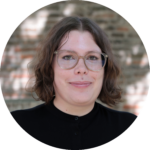Research
My doctoral project deals with the (standard) health care of transgender and intersex people in Germany and with the extent to which this is intertwined with the knowledge about bodies that do not conform to the (gendered) norm within medicine. The question that arises for me is how the underuse of these groups of people – as stated in a few studies – comes about and what the tense relationship is between this and legal claims (§ 2 SGB V) and framework conditions (TSG) – e.g. on so-called gender-specific preventive measures. Since the medical gaze (cf. Foucault 2016 [1963]) in the medical context makes a lifelong outing necessary (again and again), i.e. the givenness of the body opens up and limits the space for action (Meuser 2006: 98), the (bio)medical treatment and negotiation of transgender and intersex bodies is never completely finished, but a permanent (re)production of sex/gender. Accordingly, the focus of the PhD project is particularly on the knowledge about (sex/gender) ‚incongruent‘ bodies within medicine, but also on its negotiation between the various actors, the „experts of gender“ (Scheunemann 2018).
Empirically, I investigate this with the help of (group) interviews; transgender and intersex patients/persons will have their say as well as practising MDs and medical students. The methodological framework of the project is the Situational Analysis (Clarke et al. 2018): By means of the tool box it provides, the negotiation of knowledge about ’sex-/gender-nonconforming‘ bodies, i.e. the different speaker positions as well as the different levels of engagement and knowledge (re)production can be appropriately represented and investigated. My aim is to illuminate the field of tension between the pluralisation of sex/gender concepts observable in society as a whole and the materiality of the (sexed/gendered) body in and using the example of medicine.
